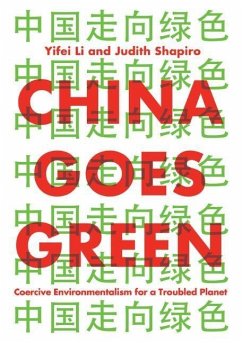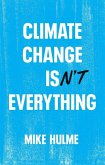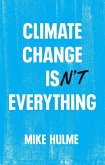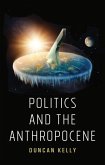What does it mean for the future of the planet when one of the world's most durable authoritarian governance systems pursues "ecological civilization"? Despite its staggering pollution and colossal appetite for resources, China exemplifies a model of state-led environmentalism which concentrates decisive political, economic, and epistemic power under centralized leadership. On the face of it, China seems to embody hope for a radical new approach to environmental governance.
In this thought-provoking book, Yifei Li and Judith Shapiro probe the concrete mechanisms of China's coercive environmentalism to show how 'going green' helps the state to further other agendas such as citizen surveillance and geopolitical influence. Through top-down initiatives, regulations, and campaigns to mitigate pollution and environmental degradation, the Chinese authorities also promote control over the behavior of individuals and enterprises, pacification of borderlands, and expansion of Chinese power and influence along the Belt and Road and even into the global commons. Given the limited time that remains to mitigate climate change and protect millions of species from extinction, we need to consider whether a green authoritarianism can show us the way. This book explores both its promises and risks.
Hinweis: Dieser Artikel kann nur an eine deutsche Lieferadresse ausgeliefert werden.
In this thought-provoking book, Yifei Li and Judith Shapiro probe the concrete mechanisms of China's coercive environmentalism to show how 'going green' helps the state to further other agendas such as citizen surveillance and geopolitical influence. Through top-down initiatives, regulations, and campaigns to mitigate pollution and environmental degradation, the Chinese authorities also promote control over the behavior of individuals and enterprises, pacification of borderlands, and expansion of Chinese power and influence along the Belt and Road and even into the global commons. Given the limited time that remains to mitigate climate change and protect millions of species from extinction, we need to consider whether a green authoritarianism can show us the way. This book explores both its promises and risks.
Hinweis: Dieser Artikel kann nur an eine deutsche Lieferadresse ausgeliefert werden.
"A clearly written, comprehensive and timely volume, China Goes Green will help students, researchers, and the general public understand how to think about China's 'authoritarian environmentalism' -- or more accurately, as Li and Shapiro argue -- 'environmental authoritarianism' under Xi Jinping. A concise guide to a very important issue."
Emily Yeh, University of Colorado Boulder
"China Goes Green brilliantly redefines our understanding of modern Chinese governance, dismantling a simplified portrait and illuminating the force, and the flaws, of the centralized approach that some officials call the 'era of coercion.' These insights are vital to understanding not only China's environmental policy but also its handling of public-health emergencies and other issues of urgent global interest."
Evan Osnos, author of Age of Ambition: Chasing Fortune, Truth and Faith in the New China
"Even as someone well versed in this material, I learned a great deal from this impressive text. I would absolutely use it with my students."
Matto Mildenberger, University of California, Santa Barbara
"Faith in the capacity of western forms of governance to meet the rising challenges of the Anthropocene is waning. Many find in China's brand of authoritarian environmentalism an appealing alternative. But can the appeal of this alternative withstand close scrutiny? Without denying or downplaying China's environmental achievements, Li and Shapiro subject China's environmental record to a systematic assessment. The result is a sobering account of what the authors describe as environmental authoritarianism in contrast to authoritarian environmentalism. An important argument that is particularly timely at this moment."
Oran Young, University of California, Santa Barbara
'Li and Shapiro trenchantly explore environmentalism as an element of China's deepening and globalizing authoritarianism, while also showing that a measure of citizen involvement, or "supervision by the masses," is required for such projects to succeed. Through nuanced case studies from urban air quality to reforestation, China Goes Green inspires us to focus on the relationship between sustainability and freedom - an endangered species in our increasingly illiberal world.'
Jesse Ribot, American University
"China Goes Green: Coercive Environmentalism for a Troubled Planet is a nuanced account of what China has done so far, and what lessons the world can learn from the authoritarian tone of environmentalism in China."
The Earthbound Report
"broad and deep, well documented and clear"
Asian Review of Books
"an important work that recasts the trade-offs of tackling catastrophic climate change."
Journal of Political Ecology
"Highly recommended for China scholars, those interested in the impact of China's growing global role, and everyone looking to understand how much coercion is necessary in environmental politics."
Jessica C. Teets, Governance
"a deeply perceptive book"
Mahesh Rangarajan, The Telegraph India
Emily Yeh, University of Colorado Boulder
"China Goes Green brilliantly redefines our understanding of modern Chinese governance, dismantling a simplified portrait and illuminating the force, and the flaws, of the centralized approach that some officials call the 'era of coercion.' These insights are vital to understanding not only China's environmental policy but also its handling of public-health emergencies and other issues of urgent global interest."
Evan Osnos, author of Age of Ambition: Chasing Fortune, Truth and Faith in the New China
"Even as someone well versed in this material, I learned a great deal from this impressive text. I would absolutely use it with my students."
Matto Mildenberger, University of California, Santa Barbara
"Faith in the capacity of western forms of governance to meet the rising challenges of the Anthropocene is waning. Many find in China's brand of authoritarian environmentalism an appealing alternative. But can the appeal of this alternative withstand close scrutiny? Without denying or downplaying China's environmental achievements, Li and Shapiro subject China's environmental record to a systematic assessment. The result is a sobering account of what the authors describe as environmental authoritarianism in contrast to authoritarian environmentalism. An important argument that is particularly timely at this moment."
Oran Young, University of California, Santa Barbara
'Li and Shapiro trenchantly explore environmentalism as an element of China's deepening and globalizing authoritarianism, while also showing that a measure of citizen involvement, or "supervision by the masses," is required for such projects to succeed. Through nuanced case studies from urban air quality to reforestation, China Goes Green inspires us to focus on the relationship between sustainability and freedom - an endangered species in our increasingly illiberal world.'
Jesse Ribot, American University
"China Goes Green: Coercive Environmentalism for a Troubled Planet is a nuanced account of what China has done so far, and what lessons the world can learn from the authoritarian tone of environmentalism in China."
The Earthbound Report
"broad and deep, well documented and clear"
Asian Review of Books
"an important work that recasts the trade-offs of tackling catastrophic climate change."
Journal of Political Ecology
"Highly recommended for China scholars, those interested in the impact of China's growing global role, and everyone looking to understand how much coercion is necessary in environmental politics."
Jessica C. Teets, Governance
"a deeply perceptive book"
Mahesh Rangarajan, The Telegraph India








